Acceptance, Integration, Appreciation and Enablement
“I like this summer camp because I met a lot of new friends there. At school my classmates are so indifferent that I have few friends. I dream to be a sign language teacher who can help people like my parents,” said 11-year-old Yilin after attending Chunhui Children’s week-long 2022 summer camp.
Yilin is an at-risk child with Chunhui Children’s village program in Tongzhou district of Beijing. Born into a family with speechless parents, the boy has few words and is not sociable. Since he was enrolled in Chunhui Village Program, he has often been invited to the child center, where he ventured into the unknown and explored his interests. At the summer camp, he instructed other campers in sign language. For him it was a fulfilling task and helped him feel part of the group.
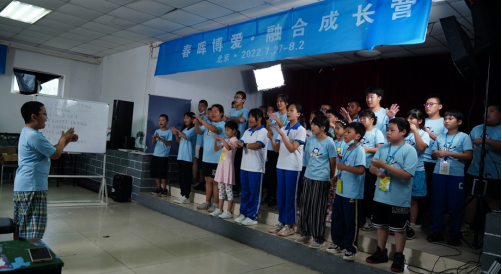
The summer camp invited children ages 7-17 who live in typical families and who are mired in difficulties but nurtured by Chunhui Village Program. Altogether 40 children spent a week together learning to accept, empathize and appreciate uniqueness in a caring, tolerant and supportive environment.
1. A little kindness goes a long way
16-year-old ShuoShuo was the only wheel-bound camper of the 40. As she suffers from CP and epilepsy and needs special care, her mom came with her. But her Chunhui counsellor encouraged her mom to step back as much as possible rather than do everything for her. The other campers in ShuoShuo’s group took turns to help her participate in activities, which was a great opportunity for them to learn to appreciate and care for each other. It was the first time ShuoShuo had received so much help and she tried her best to help others as well. She consoled her partner when she felt bad, gave heartfelt praises and expressed gratitude to those who gave her a helping hand. Later on, she received cards from many other campers, one of which read: “ShuoShuo, nice to meet you. I learn from you how to be brave and tough. Wish you all the best in the future.”
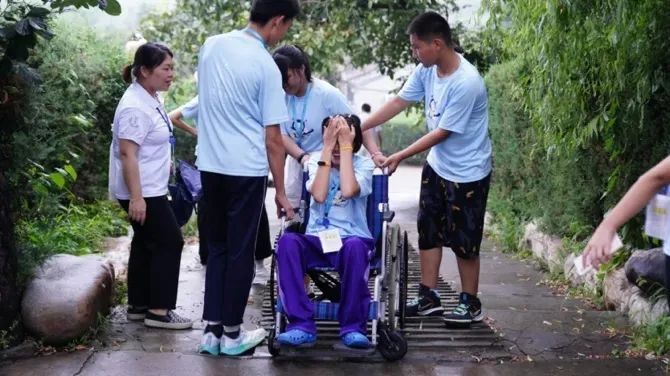
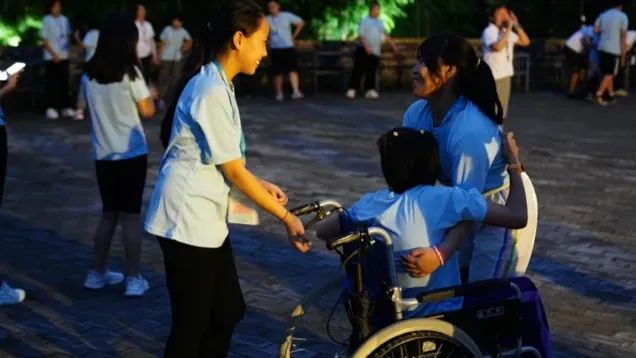
2.I see you
14-year-old HeHe is a shy girl growing up in a well-off family. The first days she was in the camp, she had few words. The 11-year-old Jie is thought to be an idiot by her family. In their eyes, she is good for nothing. Her parents divorced and she has been living with her dad and grandma ever since. She has no friends and everything they say about her is harsh and negative. While picking up wormwood, HeHe picked up more and shared some with Jie. Later that day, at the sharing session, Jie walked onto the stage on her own initiative, showed her appreciation for HeHe and put a little “smiling face” sticker on her T-shirt. It was a big surprise for HeHe as she never thought that her small act of kindness helped the withdrawn Jie open up. Since that day on, HeHe behaved like a changed girl. She was actively involved in the group activities, trying to fit in and relate to others.
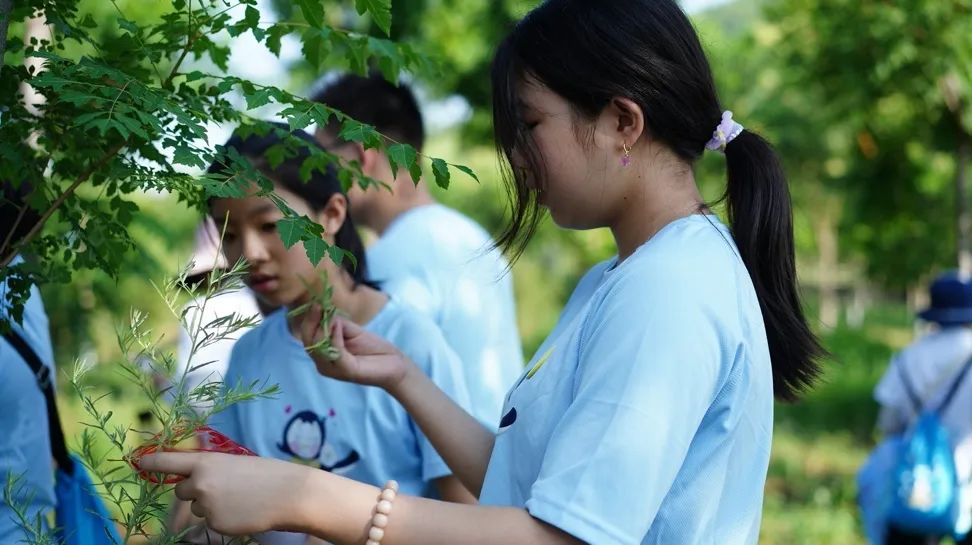
3.Learn to appreciate and live together in friendship
Yao and Ran were inseparable friends at the camp. Yao is a child of Chunhui Village Program. Her parents divorced and she lives with her grandparents. Her dad doesn’t keep in touch with them, her grandpa is a street cleaner, and her grandma suffers from diabetes, which makes the 8-year-old girl a de facto unattended child. But she has always been optimistic and outgoing. Unlike Yao, Ran grows up in a loving family and has an enriching childhood. On day 5 of the camp, Chunhui Children scheduled “home” visits. Yao invited Ran and some other campers to her “home”. Learning that Yao’s friends would come over, Yao’s grandma prepared quite a lot of snacks. “My grandma has never provided me so much nice food,” Yao said to her friends. Ran learned from the camp that we need appreciate differences and think in others’ shoes. She said to Yao: “Your grandma prepared so many snacks for us because she knows we are your friends. She really loves you.”
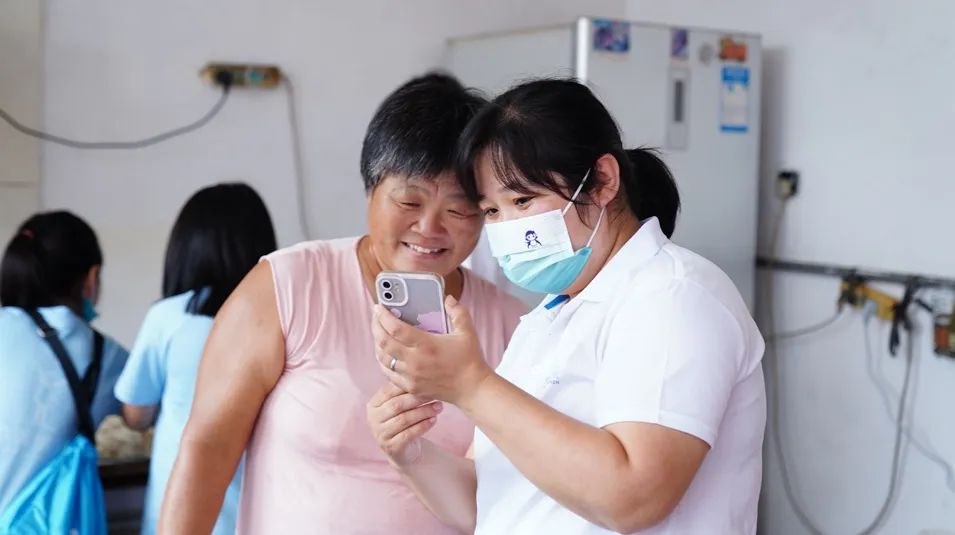
Yao’s Chunhui counsellor briefed Yao’s grandma on the camping activities and told her that Yao was incredibly brave and confident in the activities. The elderly lady was so touched that she said emotionally: “Yao was so fortunate to meet such nice friends and teachers like you. My thanks go to Chunhui Children for providing Yao this great opportunity.” The Grandma also learned that Yao appreciated Ran’s poise and good communication skills. Ran, in turn, was impressed by Yao’s sports skills, bravery and resilience.
4.Meet different lives
On day 2, the children were engaged in an activity where they were encouraged to walk with eyes blindfolded on the floor and outdoor pebble roads coated with flour and scattered with messy chairs. “When I put on the eye mask, I felt utter darkness. I was helpless and scared. When my counsellor rushed us with a microphone, I was terrified,” said one of the campers.
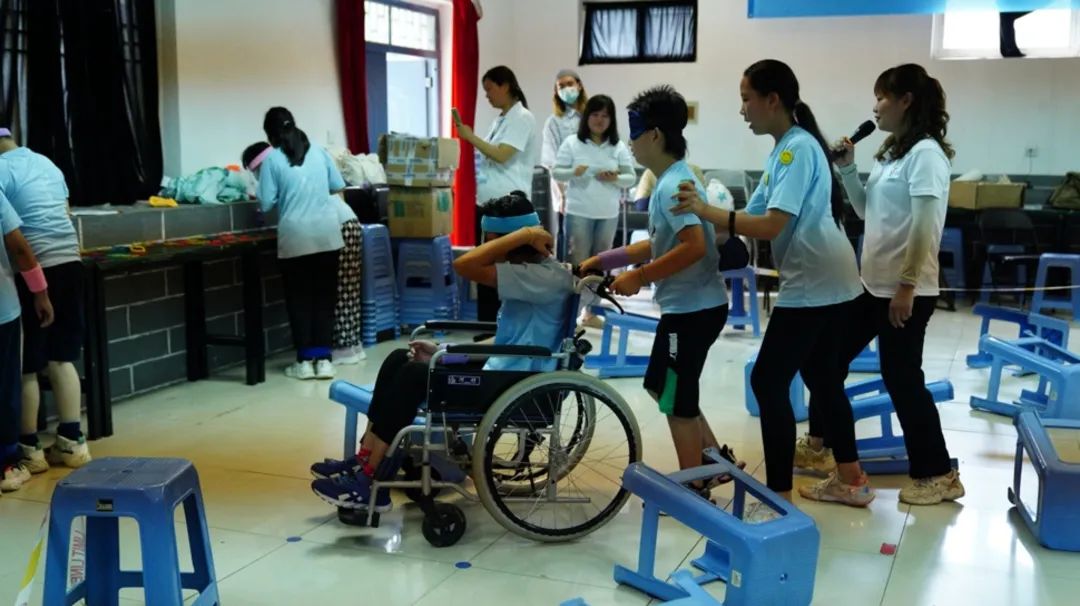
Then the children were invited to take water or maintain one posture for 30 seconds the way a child with CP does. In these activities, they experienced what those with special needs have to go through every day and learned how much cooperation and teamwork matter. They began to accept, respect and empathize with their vulnerable counterparts rather sympathize with them as they had previously done.
“If I meet people like them again someday, I will give them full respect.”
“Now I know that people with special needs have their own strengths and I will learn to appreciate them.”
“I meet different lives in this camp. Everyone, including those with special needs, is unique in his/her own way, and we need respect them all.”
5.Gift of love from a “father”
Many of the campers are de facto unattended children longing for fatherly love. In this camp, they were more than glad to have a tall and strong male counsellor Peng who was gentle but firm and cared for them like a father.
The 14-year-old Bo has a very complicated family he isn’t proud of. His father was thrown into prison for intentional murder, his mother disappeared, and he has been living with his grandparents. Short-tempered and aggressive, he is labelled a “bad boy” and even a “delinquent-to-be”. But in counsellor Peng’s eyes, this unpopular boy is helpful and caring. He took the initiative to push ShuoShuo’s wheelchair and at mealtimes he prompted his groupmates to let their counsellors go first.
Both Bo and Peng love basketball, and Bo was impressed by Peng’s kills. It had been such a long time since he had received loving care from a fatherly man like Peng. Bo flew into a rage over any small disagreements and his unfriendly stare scared even some counsellors. Peng showed him how to respect others, especially girls, and how to deal with problems in a friendly way. With Peng around, having heart-to-heart talks with him and spending time with him playing basketball as much as he liked, Bo felt he was respected and loved.
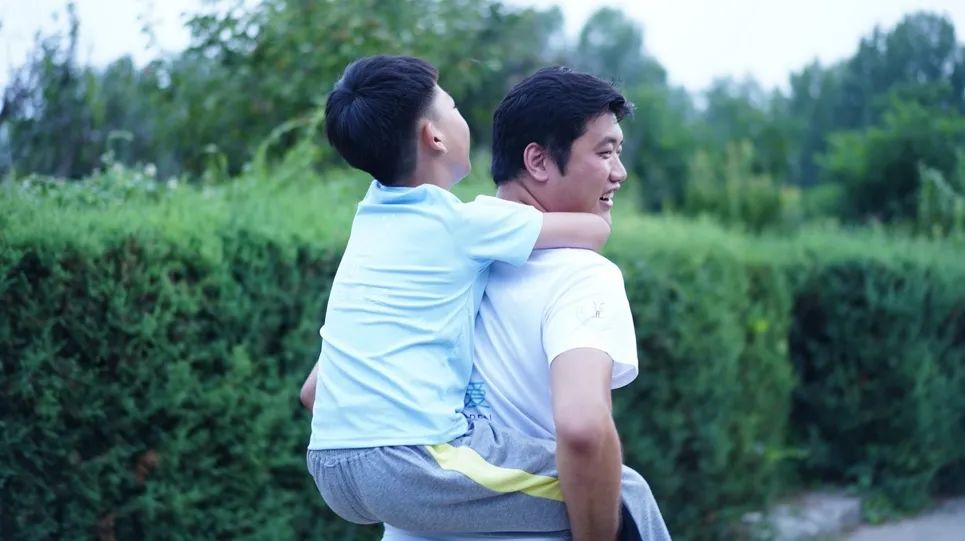
De facto unattended boy Yu has lost contact with his mom since his father passed away when he was very little. To protect himself he has learned to please his teachers and classmates. At the camp, his ankle was sprained. Without any hesitation, Peng put him on his back and headed towards his dorm right away. This unexpected act of love put Yu ill at ease because, as the counsellors knew, he had wanted such love for so long.
6. Accept different feelings and character traits and treat each child equally
ShuoShuo lost her “smiling face” sticker and turned to counsellor Xie for help. “I am sorry you lost your sticker and I know you must be upset. But you yourself need take responsibility for this. If I give you another one without other campers’ permission, that is unfair and disrespectful to them. I hope you take good care of it next time, if you could ever have one again,” said Xie.
Over all these years working with Chunhui Children, Xie has served countless children with special needs. She is known for her dedication to Chunhui Children’s values-----accept and appreciate each camper so they could learn and benefit from the camp. Considering ShuoShuo’s special needs, she took the girl into her group. Like Peng, she was gentle but firm. She treated ShuoShuo like any other child and encouraged her to try using her wheelchair independently rather than wait for help so that her mom could take a rest.
On the third night, the children went on a 4km-hike to explore the secluded paths serenely crouching in midst of the hills. ShuoShuo’s special physical needs precluded her from this exploration, but Xie promised her that her teammates would bring 4 luminous stones back to her.
Xie responded to each child’s needs and feelings and managed to solve all thorny problems that came along. Chunhui counsellors hold fast onto such concepts like acceptance and inclusion which always keep the whole Chunhui family as one and inspire it to go and grow.
7. Put your dreams into action
“Ms Xie, I want to join Chunhui Children and help others the way you do,” said ShuoShuo’s twin sister Bo when the camp was over.
Unlike ShuoShuo, Bo is healthy. As their mom spends most of her time caring for ShuoShuo, Bo feels ignored and burdened with the responsibility of looking after her sister as well. This teen girl has grown depressed and withdrawn. Although both the sisters joined in the camp, Chunhui counsellors didn’t put them in the same group.
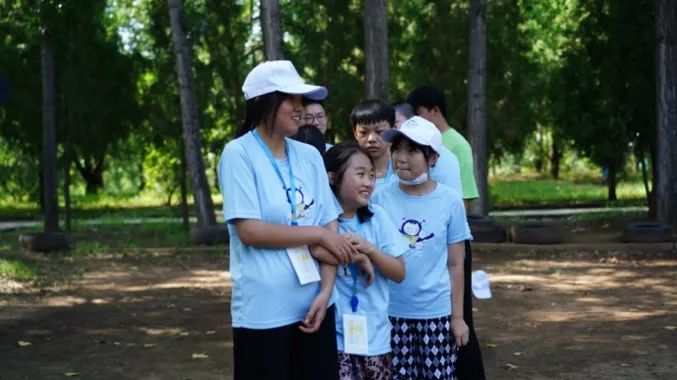
In her group, Bo was the oldest camper. She sat down together with the younger campers to design their group’s slogan and flag and fought side by side with them in group competitions. Six days into the camp, Bo always felt she was capable and worthwhile and, more importantly, she made lasting friendships.
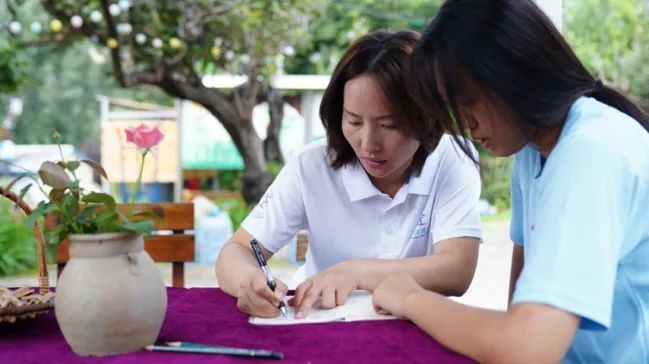
Bo was most touched by the Chunhui counsellors who identified and responded to each camper’s feelings in a timely manner. She wanted to join Chunhui Children as well. “Bo, now you have your role models. Take real actions to realize your dream. I believe in you. You have the potential to create your own bright future,” said her counsellor.
8.There are no right or wrong feelings
Objects are often associated with feelings: dark clouds with worry, a sandbag on the shoulder with depression, the tail of a dinosaur with anger and colorful stars with happiness.
It’s easier for the children to understand and express their feelings when they imagine them as objects. Chunhui counsellors inspired the children to describe the feelings they experienced in the camping days.
“At first, I was shy and scared, but after I took part in the activities, I opened up. Now I am glad that I came to the camp.”
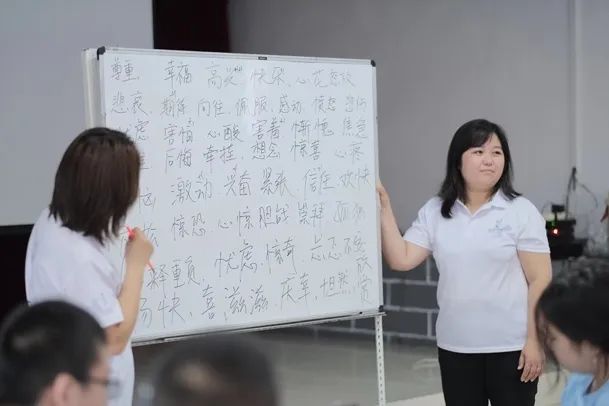
“I was scared when I was tasked to catch a frog, but my partner’s encouragement helped me overcome my fear. And when I finally caught the frog, I was thrilled.”
“I am so touched that my campmates gave me lots of help.”
There is no right or wrong about feelings. It’s important to learn to accept and cope with them in appropriate ways.
Then the children were encouraged to write down their own 5-6 feelings on a slip of paper, stick it inside a balloon, blow the balloon up and tie it to one of their legs. When everyone was ready, they moved about all at once trying to step on each other’s balloon. Anyone who burst a balloon picked up the slip of paper that popped out and shared the feelings on it with others.
In this way, the children learned to recognize and manage their feelings in positive ways.
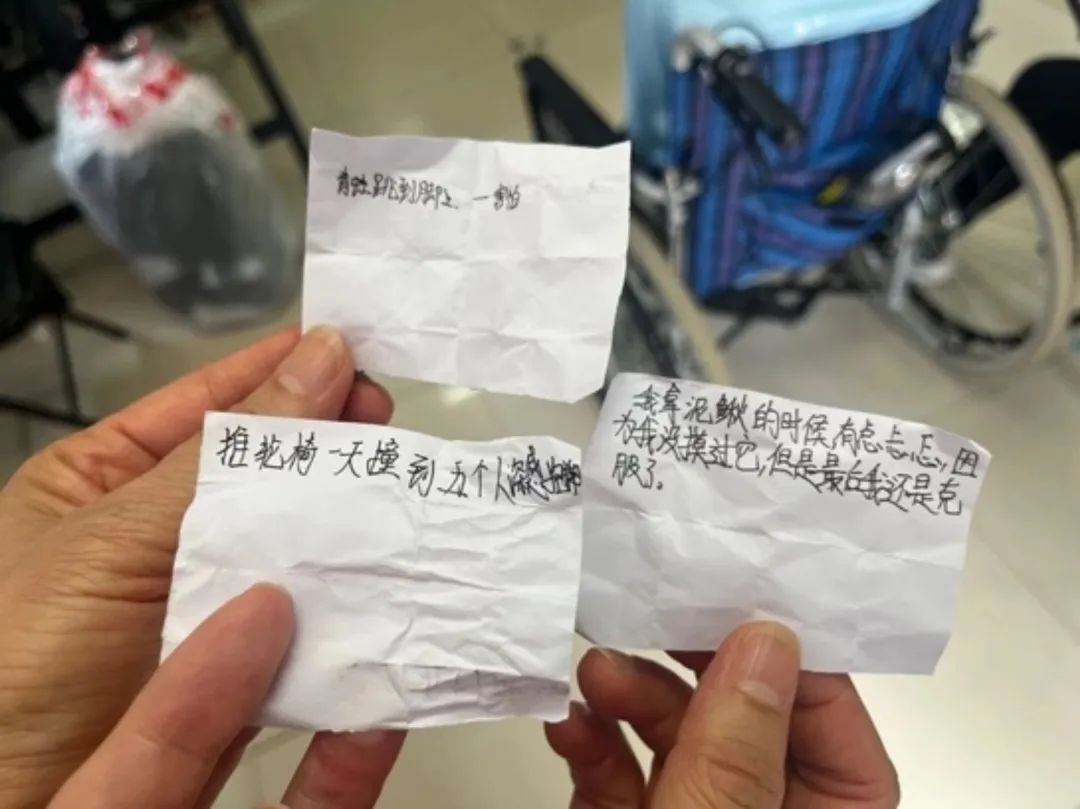
Years will go by and the children may not remember these activities or meet each other again, but the love, empathy, acceptance and respect they experienced at this camp with live with them for a lifetime.
It is mid-summer now. Searing heat is closing over the city and cicadas are singing their songs of joy with outrageous passion.